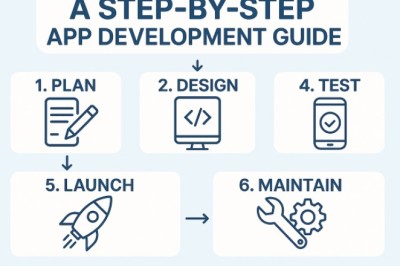views
Understanding addiction as a chronic brain disease can help shed light on the complex nature of recovery. Sometimes recovery from addiction is a straightforward, linear process. However, this is not the typical storyline for people on the road to recovery. Often, recovery is mixed with relapse, and relapse can sometimes become chronic. Here’s what chronic relapse means and how we should respond to it.
Chronic Relapse 101
While the experience of addiction can be similar for many, no two people are exactly the same. This means the contributing factors to developing a substance use disorder (SUD) will often look different for people. This applies to the kind of side effects people experience from substances, the kind of withdrawal symptoms they might experience, and most importantly, whether (and how frequently) relapse occurs.
Relapse is a common occurrence for people who are trying to quit drugs and alcohol. Treatment facilities expect this to be part of the recovery experience, and they have factored this into the treatment methods they provide to people. Because addiction is a brain disease, the aftermath of an SUD can affect the entire body, emotionally and physically. Healing the brain entails retraining it to communicate properly with the rest of the body, which is not achieved overnight. Because of this, people should not consider relapsing a moral failure or a sign that recovery is impossible.
But what is the difference between expected relapse and chronic relapse? Simply put, chronic relapse is when someone relapses more often than average. The good news is that even in chronic relapse, addiction is still treatable, so no one should lose hope if chronic relapse is their experience with a chronic disease.
Why It Happens
While relapse can happen for various reasons, common triggers can help explain why it happens. Stress is the most common cause of relapse, so this is to be expected. As the brain tries to heal from substance abuse and recovering substance users try to navigate their treatment plans and take control of their lives, it can seem like an overwhelming process. Stress can set in when we think about what is at stake and how long recovery could take. This can intensify withdrawal symptoms, especially because the brain’s reward system depends on substance use to experience euphoria and stress relief.
Unfortunately, this can cause people to relapse and experience depression due to losing momentum in the recovery process. Closely related to stress are the people and environments they are surrounded by during the recovery process. If these environments are negative and they feel isolated, this can greatly intensify feelings of stress and overwhelm.
How to Respond to Chronic Relapse
However, a support group of friends, family, and the workplace can also prove to be one of the greatest benefits of recovery. Since the brain controls a person’s physical and emotional components, recovery depends largely on emotional health.
Inpatient treatment is one way to avoid or quickly recover from chronic relapse. The reason for this is not only is inpatient treatment a dedicated 24/7 professional medical environment, but it is also an environment that benefits emotional health.
It is easy to feel isolated and stressed when it feels like the weight of recovery is entirely on your shoulders; inpatient treatment is a constant reminder that you are not alone in the recovery process. You’ll have professionals committed to your success, even when relapse is chronic.
Sources
Delphi Health Group. (n.d.). Guide To Drug Addiction: Symptoms, Signs, and Treatment. Retrieved https://delphihealthgroup.com/addiction/
Delphi Health Group. (n.d.). What Is The Difference Between Substance Use and Substance Abuse? Retrieved https://delphihealthgroup.com/blog/substance-use-become-substance-abuse/
Delphi Health Group. (n.d.). Guide to Alcohol Detox: Severity, Dangers, and Timeline. Retrieved https://delphihealthgroup.com/alcohol/detox/
Very Well Mind. (2021 Jan 6). Why Addiction is Considered a Chronic Brain Disease. Retrieved https://www.verywellmind.com/addiction-is-a-chronic-brain-disease-67874
Delphi Health Group. (n.d.). Understanding Chronic Relapse and How to Treat it. Retrieved https://delphihealthgroup.com/treatment-guide/chronic-relapse/
National Institute on Drug Abuse. (2019 Jan). What is Drug Addiction? Retrieved https://nida.nih.gov/publications/drugfacts/treatment-approaches-drug-addiction
Very Well Mind. (2020 Nov 28). 5 Triggers of Relapse and How to Avoid Them. Retrieved https://www.verywellmind.com/why-did-i-relapse-21900
Delphi Health Group. (n.d.). Drug Withdrawal Symptoms and How to Deal with Them. Retrieved https://delphihealthgroup.com/blog/drug-withdrawal/
Psycom. (2022 Sep 14). Substance Abuse and Depression. Retrieved https://www.psycom.net/depression/depression-and-substance-abuse
Delphi Health Group. (n.d.).Supporting a Family Member Going Through Drug Withdrawal. Retrieved https://delphihealthgroup.com/addiction/withdrawal-support/
American Psychiatric Association. (n.d.). Addiction and Substance Use Disorders. Retrieved https://www.psychiatry.org/addiction
Delphi Health Group. (n.d.). Inpatient Treatment Programs for Substance Abuse. Retrieved https://delphihealthgroup.com/our-services/inpatient-rehab/
Related:Dialectical Behavioral Therapy

























Comments
0 comment